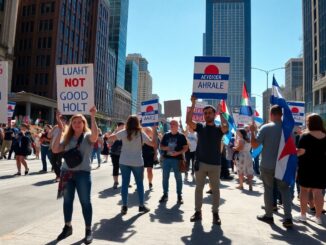The latest announcements reveal who will receive winter fuel payments and the implications of income limits.

Topics covered
The Department for Work and Pensions (DWP) has made a significant announcement regarding the winter fuel payment for 2025. Individuals born before a specified date will qualify for this crucial financial support aimed at easing heating costs during the colder months.
Following the recent statement from Chancellor Rachel Reeves, which confirmed that nine million people who missed out on the £200-300 benefit last winter will now receive it, the DWP has updated its eligibility criteria on the official government website.
Who qualifies for the winter fuel payment?
According to DWP officials, the winter fuel payment will be granted to everyone born before September 22, 1959, residing in England and Wales. This includes automatic payments of either £200 or £300, intended to help cover heating expenses.
“You don’t need to take any action—payments will occur automatically,” the DWP stated, aiming to alleviate concerns over the upcoming winter.
Income threshold and tax implications
However, the eligibility comes with a caveat. Individuals earning over £35,000 will still receive the payment, but it will be reclaimed later through HMRC, adding a layer of complexity to the process. The DWP has not elaborated on how this recovery will be executed, leaving many questions unanswered. “If your income exceeds £35,000, your winter fuel payment will be recouped later through HMRC,” the officials reiterated, highlighting the financial nuances that could affect many recipients.
The impact of fiscal drag
Warnings have emerged regarding the issue of “fiscal drag”. The £35,000 income limit is set to remain static, which could lead to an increasing number of individuals losing their winter fuel payment as wages rise over time. This could potentially affect an additional 500,000 people before the end of the current parliamentary session. BBC Moneybox expert Paul Lewis commented on the implications of the frozen income limit, likening it to other financial constraints that impact those relying on public funds.
Economic outlook and government response
In the wake of these announcements, Prime Minister has pointed to recent growth figures and decreasing interest rates as signs of economic stabilization. Rachel Reeves emphasized the government’s commitment to growth, stating, “This government is going for growth because that is the best way to create jobs and sustainably fund public services.” Despite the optimism, there’s a clear acknowledgment that many working individuals may not yet feel the benefits of this growth. Reeves highlighted the need for the upcoming spending review to focus on making working people better off, reflecting a broader concern about economic disparities.
Future tax considerations
As discussions surrounding the winter fuel payment unfold, the possibility of additional tax hikes in the autumn looms large. New economic data has indicated a sharper contraction than expected, prompting economists to warn that further tax increases may be necessary to mitigate the effects of this downturn. Reeves stated, “It would be very risky for a Chancellor to attempt to draft future budgets in such an uncertain world.” This cautionary note leaves individuals and families wondering how future fiscal policies will impact their financial stability.
What’s next for recipients?
For those eligible for the winter fuel payment, the anticipated relief is a welcome development, but the associated complexities regarding income thresholds and tax implications create an air of uncertainty. With updates on eligibility expected by the end of June 2025, recipients are left to navigate a landscape fraught with potential pitfalls. The clarity on these payments, alongside the broader economic context, will be crucial as households prepare for the winter ahead.




